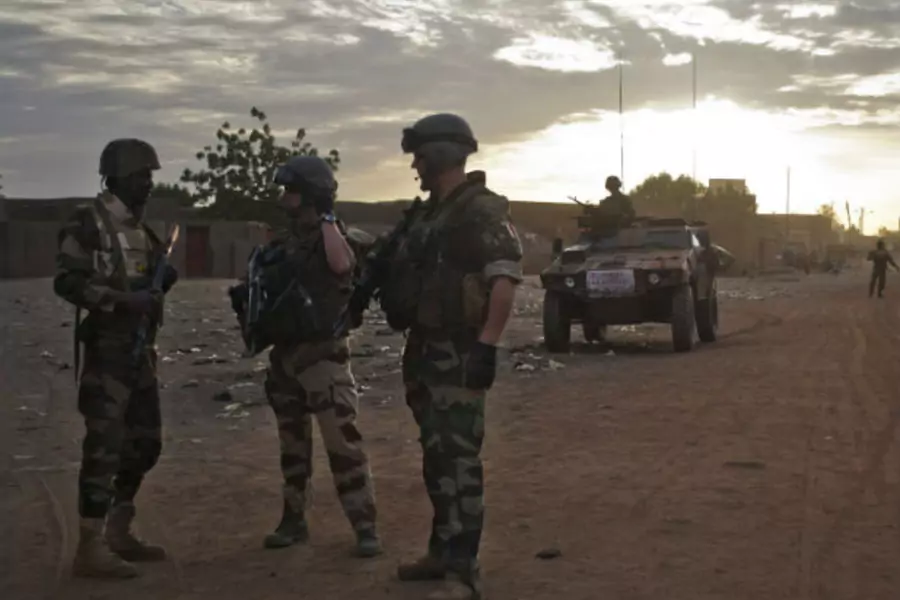More on:
On April 25, the Security Council approved a UN “peacekeeping” force of 12,600 for Mali. They asked the UN Secretary General to appoint a Special Representative for Mali, and called on member states to provide troops, police, and the necessary equipment. It also authorized the secretary general to approve cooperation between the UN mission in Mali and the UN missions in Liberia and Ivory Coast for the temporary sharing of logistical and administrative support.
The new mission will be called the UN Multidimensional Integrated Stabilization Mission in Mali (MINUSMA). It is to begin operations on July 1, taking over from the African-led International Support Mission to Mali (AFISMA)—unless there is a major military operation “or a continued threat from terrorist forces on the civilian population.” The Security Council also authorized French troops to “use all necessary means to support MINUSMA if it falls under imminent threat and if so requested by the secretary general.”
MINUSMA’s mandate is extensive. It is to “use all necessary force” to “stabilize the key population centres, especially in the north of Mali…to deter threats and take active steps to prevent the return of armed elements to those areas.” It is mandated to support the Malian government’s sovereignty throughout the country. According to Under Secretary General for Peacekeeping Operations Herve Ladsous, MINUSMA will assist the Bamako government in re-establishing a “full constitutional order, democratic governance, and national unity.” He said this would include the projected July national elections.
However, Russia has been concerned that UN peacekeepers are assuming a more aggressive role than the usual monitoring of cease-fires. According to the New York Times, Russian ambassador Vitaly I. Churkin said that placing UN forces in the midst of a civil war would have “unpredictable and unclear consequences,” especially for the safety of UN personnel.
Ladsous emphasizes that MINUSMA “is not an enforcement mission. This is not an anti-terrorist operation.” But, MINUSMA’s mandate includes establishing security, which likely means anti-terrorist and statebuilding operations, including a role in national elections. At present, there is no peace to keep in northern Mali. MINUSMA’s sweeping mandate appears to go beyond the UN’s traditional peacekeeping role, though there are precedents for each piece of it.
Nevertheless, Russia voted for the resolution, and there seems to be little alternative to MINUSMA and its extensive mandate if peace and security are to be restored in Mali. The French have indicated that they contemplate no permanent presence in Mali, and the regional African body, the Economic Community of West African States (ECOWAS), lacks the necessary capacity. But the Russian ambassador is right: MINUSMA and its extensive mandate in a civil war environment can have “unpredictable consequences.”
More on:
 Online Store
Online Store
